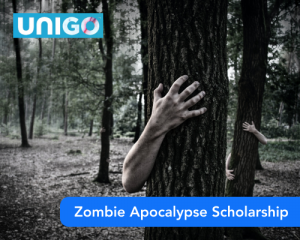What are your chances of acceptance?
Calculate for all schools, your chance of acceptance.

Your chancing factors
Extracurriculars.
How to Write the UNC Chapel Hill Essays 2024-2025
The flagship institution for the University of North Carolina is consistently ranked as one of the best public universities in the country. Because of its exceptional academics, wide array of extracurricular activities, internship and research opportunities in the Research Triangle of North Carolina, and renowned Tar Heel athletics program, it’s no wonder tens of thousands of highly qualified applicants apply each year.
In order to stand out from the crowd, you will need to write exceptional essays that blow the admissions committee away. This year, UNC Chapel Hill requires all applicants to submit two short responses under 250 words. We’ll cover how to write each of these essays in detail, with lots of expert tips on how to stand out.
Read these UNC Chapel Hill essay examples written by real students to inspire your own writing!
UNC Chapel Hill Supplemental Essay Prompts
Prompt 1: Discuss one of your personal qualities and share a story, anecdote, or memory of how it helped you make a positive impact on a community. This could be your current community or another community you have engaged. (200-250 words)
Prompt 2: Discuss an academic topic that you’re excited to explore and learn more about in college. Why does this topic interest you? Topics could be a specific course of study, research interests, or any other area related to your academic experience in college. (200-250 words)
Discuss one of your personal qualities and share a story, anecdote, or memory of how it helped you make a positive impact on a community. This could be your current community or another community you have engaged. (200-250 words)
This prompt puts a spin on the traditional community service essay that asks about your involvement and impact on a community you are a part of. While you still need to address your impact on a community, you have to do it through the lens of a personal characteristic.
In order to fully answer this question, you will need to pick a character trait and a community you are part of and then find a story that blends the two together. There are two main ways you could go about brainstorming.
The first method is to start with a personal trait and work outwards to find an example that demonstrates that characteristic. This is a good approach if you have a character trait that contributes to your application theme. For example, if the theme of leadership is running throughout your application, you might want to write about your leadership and then find an example of a time when you exhibited it in one of your extracurricular or volunteer communities.
The other approach is to pick a community that is important to you and work backwards to find a characteristic. This method will require more introspection as you will need to consider the role you play in the community, how you typically act, how you interact with other community members, etc. If you have a community that is a foundational part of your personality, this might be the approach for you.
As you go about brainstorming, remember that there is no right or wrong character trait or type of community. In fact, you could even spin a “negative” trait like being impulsive or anxious into a positive story—if you go down this road, be careful to show how you had a positive impact on the community and maybe how you fixed the negative trait through being part of the community.
Once you’ve thought of a characteristic and a community you want to focus on, the next step is to come up with a story that highlights how your chosen personality trait led to a positive outcome in your chosen community. Ask yourself some guiding questions to remind yourself of important details that will make your story more engaging:
- Where were you?
- Who was involved?
- What types of conversations took place?
- Did you feel confident in your contribution or did you go outside of your comfort zone?
- What actions did you take? What were you hoping to accomplish?
Now it’s time to start writing! Since you only have 250 words, you’ll want to get right to the heart of the story. A good tactic to accomplish this is to start in media res , or in the middle of the action. For example:
“‘A little more to the right. Up a little. No, dow—there! Perfect!’ The large white tarp hung over the gym entrance, prepared to greet every student attending the rally, perfectly straight thanks to my razor-sharp eyesight and impeccable judgment.”
As you write, make sure you emphasize the story—after all, the prompt explicitly asks for a story or anecdote—by showing the reader through vivid imagery. Place the reader in the moment with active language (“running” instead of “I ran”), use sensory descriptors (“the sweet smell of cinnamon and clove warmed the biting chill in the air”), and avoid generic adjectives like “happy” or “excited.”
Another crucial thing to show (not tell) in this essay is your character trait. Readers like to feel like they are playing an active role in a story, meaning they want to pick up on clues and come to conclusions by themselves. If a student starts her essay by saying, “My positive attitude inspired my lacrosse teammates to play our best even in terrible weather,” we immediately know exactly what her trait is, which leaves us less engaged.
Instead, she can hint at her positivity without explicitly stating it by saying something like this:
“As fat raindrops started splattering on the windshield of the bus, a chorus of grumbles rose from my lacrosse teammates. ‘Another rain game, really?’ someone moaned. She had a point: our last three games had left us all wondering if we had accidentally tried out for the swim team. The drizzle quickly turned into a downpour, while Taylor Swift sang into my airpods ‘It’s a cru-u-u-u-el su-u-mmer….’ Wait, Taylor Swift? The artist famous for performing some of her best shows in the rain? Suddenly, I had an idea.”
This is a much more immersive opening, which places us right alongside this student as she first commiserates with her teammates, and then thinks of a way to lift the mood. We get a lot more detail, which keeps us invested as we wait to see where the story is going, compared to the example above where we check out before the story even starts.
It’s important that your reader be able identify what your character trait is and how it enabled you to positively impact your community. Looking at your essay, it should be easy to point to a change in the community for the better as a result of your involvement. Once you think you’re done writing, go back and ask yourself if that change is obvious. If not, keep revising until it’s clear.
Discuss an academic topic that you’re excited to explore and learn more about in college. Why does this topic interest you? Topics could be a specific course of study, research interests, or any other area related to your academic experience in college. (200-250 words)
While you might be tempted to approach this prompt in the way you would approach a traditional “Why This Major?” essay , hold on for a second and reread the prompt. Rather than being asked why you are pursuing a particular major or area of study, you’re being asked about “an academic topic that you’re excited to explore and learn more about in college.”
Yes, you will probably be most excited to study the topic of your major, but this prompt gives you the chance to look beyond your major and demonstrate the nuances of your interests.
A Good Response Versus a Great One
A good response will focus on a student’s major—”biology,” for example—but a great response will either home in on a specific facet of the major or delve into interdisciplinary interests.
For instance, a student who wants to home in on a specific topic within biology might discuss her fascination with CRISPR genome editing and its ability to potentially cure leukemia. Although her major is technically just “biology,” she is able to focus her essay on this niche topic within biology because this prompt doesn’t box you into discussing your major as merely a school curriculum.
A different student might go down the interdisciplinary route by writing about his interest in gene expression and how environmental factors caused by housing and urban policy can influence what genes are turned on and off. While this essay would still be discussing concepts related to the student’s biology major, it would also demonstrate to the admissions committee the student’s multifaceted interests and his ability to connect seemingly unrelated topics.
Whether you choose to drill down into a specific topic or to make connections between different topics, your essay should still be related to your major. If you’re deciding to major in biology but submit an essay to UNC about your love for American history without a single mention of science, it might raise some questions from the admissions committee.
Find an Anecdote
One of the best ways to show admissions officers your passion for a subject is through a story—in fact, when it comes to college essays, the best way to show anything is through a story!
Anecdotes provide a natural and captivating introduction to your essay, can be used as supporting details for a point you are trying to prove, and can give the essay a common unifying theme. Whether you use your anecdote as a hook in the beginning or write the whole essay around it, it’s important to have a strong personal story when using an anecdote to demonstrate your interest in a topic.
Some good sources of inspiration to get you started might include:
- Your first experience with the topic
- An independent project you conducted on the subject
- A time you struggled with the subject material
- Key questions you have about the topic
- A piece of media you consumed (podcast, book, TV show, etc.) that discussed or challenged your ideas on the topic
- Your personal connection to the topic
Demonstrate Your Interest
The next important part of this essay is demonstrating your interest to show the admissions committee why you want to study this topic in further detail. Your anecdote will help accomplish this goal, but let’s break it down a little more.
In order to successfully demonstrate your interest, you will need to show what, in particular, excites you about this topic. Is it a personal connection? Perhaps your goal is to cure a disease your family member suffers from. Alternatively, is it a chance for you to let your imagination and creativity run wild? If so, how does that feel? Will understanding this topic open doors for you to tackle even more complex issues? Whatever your point of interest in the topic is, you need to make it clear to the reader.
A generic way of demonstrating your interest might look like this:
“I first learned about CRISPR technology in my freshman year biology class. The thought of modifying genes to fight diseases was so exciting to me. Ever since then, I’ve been interested in curing diseases like leukemia.”
Those sentences tell us very little about the interest, and they don’t really show us anything. Saying it was “exciting” and that she was “interested” isn’t descriptive enough to show the reader why the student is pursuing it. Compare that with this example:
“A blue and red helix swirled around the screen as nucleobases were cut and spliced. Within minutes the sequence was inserted and the DNA began replicating without a second thought to its new appendage. My eyes shot open and my jaw grew slack. Images of pristine, white hospital walls clouded my vision. The strong smell of disinfectant permeated the air. All those hours sitting with my mom, holding her cold hands through the chemo, and it could have been solved in minutes with CRISPR?”
This version shows the reader infinitely more about the wonder and disbelief surrounding the topic with imagery like “my eyes shot open and my jaw grew slack.” Then, by detailing the images, smells, and feelings of sitting with their mom through chemotherapy, the student fully conveys her personal stake in this technology and why she is drawn to the topic.
Why Should UNC Care?
Okay, so you know what topic you are interested in studying in college and you have a good story to go with it. So what? Why should the UNC admissions officers care? The final step is to connect your interest to the academic and extracurricular offerings at UNC Chapel Hill.
Although this isn’t a “Why This School” essay that specifically asks for you to mention school resources, the best way to make your essay stand out is to go beyond what you are explicitly asked for and demonstrate the level of research you have done.
The word count is limited for this essay, so the majority of your focus should be on telling the story and demonstrating your interest in your chosen topic. However, try and reserve a sentence or two to weave in school-specific offerings.
When you are including these opportunities, it’s important to ensure that they are both unique and supported by your personal connection. In other words, don’t just say you’re excited to take Biology 101 at UNC, since every university offers that class—instead, find a more distinctive offering that would be harder to find elsewhere, like Molecular Genetics .
Similarly, tie each resource you mention back to yourself. Don’t just say that you want to work with a specific professor; add what you hope to learn from their work with gene replication in mice and how you think you might apply that work to humans, for example.
The UNC admissions officers will read thousands of essays where students simply tell their stories and forget to connect their previous experiences to their future ones. When they come across an essay that is able to tell the student’s story and incorporate the school’s offerings, they will be impressed. Everyone loves a little flattery—even colleges.
That said, make sure that the one or two school resources you mention naturally flow in the essay. The easiest solution is to add a sentence at the end about how you’ll explore your interests on campus, but this tends to disrupt the flow of the essay and make it feel forced. Below is an example of how to make this idea less jarring:
“If only I could tell my mom about the hours I’ll have spent researching with faculty at the CRISPR Screening Facility at Chapel Hill to develop a new drug that would make chemotherapy a bad dream, and not a reality, for those suffering from leukemia.”
If you can successfully unite the topic you’re interested in with the classes, professors, programs, or extracurriculars at UNC, your essay will likely resonate more with the admissions committee.
Where to Get Your UNC Chapel Hill Essays Edited For Free
Do you want feedback on your UNC Chapel Hill essays? After rereading your essays countless times, it can be difficult to evaluate your writing objectively. That’s why we created our free Peer Essay Review tool , where you can get a free review of your essay from another student. You can also improve your own writing skills by reviewing other students’ essays.
Need feedback faster? Get a free, nearly-instantaneous essay review from Sage, our AI tutor and advisor. Sage will rate your essay, give you suggestions for improvement, and summarize what admissions officers would take away from your writing. Use these tools to improve your chances of acceptance to your dream school!
Related CollegeVine Blog Posts

- Search All Scholarships
- Exclusive Scholarships
- Easy Scholarships to Apply For
- No Essay Scholarships
- Scholarships for HS Juniors
- Scholarships for HS Seniors
- Scholarships for College Students
- Scholarships for Grad Students
- Scholarships for Women
- Scholarships for Black Students
- Scholarships
- Student Loans
- College Admissions
- Financial Aid
- Scholarship Winners
- Scholarship Providers
Student-centric advice and objective recommendations
Higher education has never been more confusing or expensive. Our goal is to help you navigate the very big decisions related to higher ed with objective information and expert advice. Each piece of content on the site is original, based on extensive research, and reviewed by multiple editors, including a subject matter expert. This ensures that all of our content is up-to-date, useful, accurate, and thorough.
Our reviews and recommendations are based on extensive research, testing, and feedback. We may receive commission from links on our website, but that doesn’t affect our editors’ opinions. Our marketing partners don’t review, approve or endorse our editorial content. It’s accurate to the best of our knowledge when posted. You can find a complete list of our partners here .
How to Ace the 2024-2025 UNC Supplemental Essay Prompts

Ginny Howey is a former content writer at Scholarships360. Ginny graduated from the University of North Carolina at Chapel Hill in May 2022 with a degree in Media and Journalism (Advertising/PR focus) and minors in Entrepreneurship and Spanish. Ginny’s professional experience includes two summers as a writer intern at global creative consultancy BCG BrightHouse. More recently, Ginny worked as a content marketing intern for Durham-based software engineering bootcamp Momentum, where she gained SEO skills. She has also written freelance articles on emerging tech for A.I. startup Resultid.
Learn about our editorial policies
Cece Gilmore is a Content Writer at Scholarships360. Cece earned her undergraduate degree in Journalism and Mass Communications from Arizona State University. While at ASU, she was the education editor as well as a published staff reporter at Downtown Devil. Cece was also the co-host of her own radio show on Blaze Radio ASU.

Cari Schultz is an Educational Review Board Advisor at Scholarships360, where she reviews content featured on the site. For over 20 years, Cari has worked in college admissions (Baldwin Wallace University, The Ohio State University, University of Kentucky) and as a college counselor (Columbus School for Girls).

Maria Geiger is Director of Content at Scholarships360. She is a former online educational technology instructor and adjunct writing instructor. In addition to education reform, Maria’s interests include viewpoint diversity, blended/flipped learning, digital communication, and integrating media/web tools into the curriculum to better facilitate student engagement. Maria earned both a B.A. and an M.A. in English Literature from Monmouth University, an M. Ed. in Education from Monmouth University, and a Virtual Online Teaching Certificate (VOLT) from the University of Pennsylvania.

The University of North Carolina at Chapel Hill is the country’s oldest state university. Apart from its star-studded basketball program, UNC Chapel Hill is known for offering top-notch academics. If you want to become part of the next class of Tarheels, focus on crushing your UNC supplemental essays. Your responses should convey your distinct voice and why you are a great fit for the school. Keep reading to learn more about how to best respond to the prompts!
Related : How to win UNC Chapel Hill scholarships
The UNC supplemental essay prompts
The University of North Carolina at Chapel Hill wants to know how you’d contribute to the campus community. They ask that you respond to the following two prompts in up to 250 words each.
Discuss one of your personal qualities and share a story, anecdote, or memory of how it helped you make a positive impact on a community. This could be your current community or another community you have engaged.
Ultimately, this question is asking you to discuss any community service you have done. This could include a wide array of activities ranging from typical community service such as picking up litter around your neighborhood to starting a club at your high school. This prompt also specifies that it can be any type of community that you have engaged in, so feel free to get creative! Some examples of communities can be your high school, your neighborhood, a place of worship or a sports team. Think about any group you have aided and what exactly you did in order to help them. Be sure to pick a story, anecdote or memory that paints you in a positive light and reveals a lot about you as a person! Remember, ultimately UNC asked this question in order to know more about you and your personality so be sure to have it shine through in this response! Once you have described your story and how it impacted your community, take it one step further by detailing how you hope to change your future UNC community in a similar fashion. For example, if you discuss starting a recycling club at your high school, you can end your response with detailing how you hope to start a similar club at UNC to help reduce the environmental impact the university will have. Connecting back to UNC will give you some bonus points with the UNC admissions officer reading over your response! Overall, be sure that you are painting a picture in your response rather than just stating your contributions to a community.
Questions to consider
- What have you done or participated in in order to benefit your community?
- What do you hope to bring to UNC to help better the UNC community?
- How did helping your community make you feel? Would you do that action again?
Apply to these scholarships due soon

$10,000 “No Essay” Scholarship

“College Here I Come” Essay Scholarship for High School Seniors

“Tuition Solution” Scholarship for STEM Students

“Scholar Dollars” Essay Scholarship for Black Students

College JumpStart Scholarship

US Bank Student Scholarship

Zombie Apocalypse Scholarship

Regeneron Science Talent Search

Elks Most Valuable Student Scholarship


Jack Kent Cooke College Scholarship
Discuss an academic topic that you’re excited to explore and learn more about in college. Why does this topic interest you? Topics could be a specific course of study, research interests, or any other area related to your academic experience in college.
Upon first glance of this prompt, it seems like the perfect opportunity to dive into why you selected your major and what you are passionate about within that field! However, it is encouraged to discuss your major but it is not required! Rather, you can discuss an interest beyond your major. Ultimately, it is a personal preference on what you decide to write about! When selecting a topic to write about, you should try to be as specific as possible. Do not just say “psychology” rather say “developmental psychology, specifically nature vs nurture in children.” Being specific allows you to truly showcase your passion and can allow you to discuss specific UNC classes, clubs and professors that relate to this specific niche interest in a field. Remember, one of the best ways to describe your passion for a subject is through a story! So, provide a natural and captivating response that details your passion through a narrative. Once you complete this narrative, you should then be connecting back to UNC. Try to choose 1-2 UNC resources you are interested in taking advantage of such as a specific club, research lab or professor’s class that connect to your academic interest.
- What are you academically passionate about? What are you hoping to major in in college?
- Why are you interested in this field of study? Is there a personal connection?
- What resources are available that you are excited about at UNC?
Final pointers for acing the UNC supplemental essays
To know which essays to choose, consider brainstorming bullet points for each question. Strive to share compelling personal anecdotes and also reveal key pieces of your identity not shared elsewhere in your application. With these tips, you should have a great start on nailing your UNC-CH supplemental essays!
Additional resources
Once you have completed your UNC supplemental essays and revised them to tell your stories succinctly, read up on how to choose a college. Supplemental essays are just one component of the college application process. Scholarships360 has plenty of resources to help with other aspects, such as our articles on everything you need to know about work study and navigating different types of student loans. While you are applying to colleges (and before and after too!), make sure that you apply for all the scholarships you are eligible for!
Start your scholarship search
- Vetted scholarships custom-matched to your profile
- Access exclusive scholarships only available to Scholarships360 members
Frequently asked questions about writing the UNC supplemental essays
How important are the unc chapel hill supplemental essays, when are the application deadlines for unc chapel hill, can i get creative with my unc chapel hill supplemental essay answers, 3 reasons to join scholarships360.
- Automatic entry to our $10,000 No-Essay Scholarship
- Personalized matching to thousands of vetted scholarships
- Quick apply for scholarships exclusive to our platform
By the way...Scholarships360 is 100% free!

University of North Carolina (UNC) 2024-25 Supplemental Essay Prompt Guide
Early Action: Oct 15
Regular Decision Deadline: Jan 15
University of North Carolina Chapel Hill (UNC) 2024-25 Application Essay Question Explanations
The Requirements: 2 essays of 250 words each
Supplemental Essay Type(s): Community , Activity
How to Write UNC Chapel Hill Supplemental Essays
UNC Chapel Hill asks two questions in their supplement, so you can “show [them] your authentic self,” and recommends that you “share specific details” in your essay responses. So don’t disappoint! Use this space to share personal stories that demonstrate aspects of your personality and values that haven’t come through elsewhere in your application. Read on to discover our UNC Chapel Hill supplement essay tips!
UNC Chapel Hill Prompt Breakdowns
Short answer prompts: we’d like to know how you’d contribute to the carolina community and ask that you respond to each prompt in up to 250 words., discuss one of your personal qualities and share a story, anecdote, or memory of how it helped you make a positive impact on a community. this could be your current community or another community you have engaged..
UNC Chapel Hill wants to hear about an aspect of your personality that has enabled you to contribute to a community you cherish. Your answer doesn’t have to be connected to your academic goals in any way, so feel free to let your mind wander. Maybe you’ve always been an animal lover, so you bring your therapy dog to your local hospital once a month to spread joy (and dopamine). How do the patients respond? Which of your personal qualities has made this possible? Perhaps you challenged your fear of public speaking to deliver an address at a town hall to advocate for greener public transportation options. Did your local government leaders take what you said to heart? Are you courageous, determined, or creative? When have you gotten involved for the greater good? Take this opportunity to provide admissions with more information about yourself and your contributions to any community to which you belong.
Discuss an academic topic that you’re excited to explore and learn more about in college. Why does this topic interest you? Topics could be a specific course of study, research interests, or any other area related to your academic experience in college.
Admissions wants to learn more about a topic that has monopolized your thoughts. When was the last time you went down an internet rabbit hole trying to research something? When were you extremely motivated to solve a problem or create something new? What topic are you hoping to be an expert on by the time you graduate college? Discuss an example of what truly fascinates you—the more specific you can be, the better. For example, instead of saying you’re interested in Biomedical Engineering, can you dive deeper? Perhaps you’re really interested in the future of smart prosthetics. Once you identify a topic that is more niche than general, go the extra mile by researching UNC and building a bridge between the topic you’d like to explore and their academic offerings. You’d also be wise to provide some examples of how you’ve already interacted with this area of interest. Did you attend a seminar about the topic? Have you read every book you can find on it? Do you have a personal connection to it? The bottom line here is to write about something that really fascinates you while also touching on how attending this specific school will help you explore your associated academic goals.
About Amanda Amah
View all posts by Amanda Amah »
We can help!
"[Our son] is loving life at UNC Chapel Hill! We had a great time working with you and would not want to go through this process again with anyone but you, which is why we want to reserve a spot for our daughter in your schedule in advance of next season."
– CEA Parent, UNC Chapel Hill, Class of 2028
"I got into my top-choice school, UNC!! Thank you for all of your help. My essays were so much stronger because of your advice. Thanks again."
– CEA Student, UNC Chapel Hill, Class of 2027
Contact us for information on rates and more!
- I am a * Student Parent Potential Partner School Counselor Private College Counselor
- Name * First Last
- Phone Type Mobile Landline
- Street Address
- Address City State / Province / Region Afghanistan Albania Algeria American Samoa Andorra Angola Anguilla Antarctica Antigua and Barbuda Argentina Armenia Aruba Australia Austria Azerbaijan Bahamas Bahrain Bangladesh Barbados Belarus Belgium Belize Benin Bermuda Bhutan Bolivia Bonaire, Sint Eustatius and Saba Bosnia and Herzegovina Botswana Bouvet Island Brazil British Indian Ocean Territory Brunei Darussalam Bulgaria Burkina Faso Burundi Cabo Verde Cambodia Cameroon Canada Cayman Islands Central African Republic Chad Chile China Christmas Island Cocos Islands Colombia Comoros Congo Congo, Democratic Republic of the Cook Islands Costa Rica Croatia Cuba Curaçao Cyprus Czechia Côte d'Ivoire Denmark Djibouti Dominica Dominican Republic Ecuador Egypt El Salvador Equatorial Guinea Eritrea Estonia Eswatini Ethiopia Falkland Islands Faroe Islands Fiji Finland France French Guiana French Polynesia French Southern Territories Gabon Gambia Georgia Germany Ghana Gibraltar Greece Greenland Grenada Guadeloupe Guam Guatemala Guernsey Guinea Guinea-Bissau Guyana Haiti Heard Island and McDonald Islands Holy See Honduras Hong Kong Hungary Iceland India Indonesia Iran Iraq Ireland Isle of Man Israel Italy Jamaica Japan Jersey Jordan Kazakhstan Kenya Kiribati Korea, Democratic People's Republic of Korea, Republic of Kuwait Kyrgyzstan Lao People's Democratic Republic Latvia Lebanon Lesotho Liberia Libya Liechtenstein Lithuania Luxembourg Macao Madagascar Malawi Malaysia Maldives Mali Malta Marshall Islands Martinique Mauritania Mauritius Mayotte Mexico Micronesia Moldova Monaco Mongolia Montenegro Montserrat Morocco Mozambique Myanmar Namibia Nauru Nepal Netherlands New Caledonia New Zealand Nicaragua Niger Nigeria Niue Norfolk Island North Macedonia Northern Mariana Islands Norway Oman Pakistan Palau Palestine, State of Panama Papua New Guinea Paraguay Peru Philippines Pitcairn Poland Portugal Puerto Rico Qatar Romania Russian Federation Rwanda Réunion Saint Barthélemy Saint Helena, Ascension and Tristan da Cunha Saint Kitts and Nevis Saint Lucia Saint Martin Saint Pierre and Miquelon Saint Vincent and the Grenadines Samoa San Marino Sao Tome and Principe Saudi Arabia Senegal Serbia Seychelles Sierra Leone Singapore Sint Maarten Slovakia Slovenia Solomon Islands Somalia South Africa South Georgia and the South Sandwich Islands South Sudan Spain Sri Lanka Sudan Suriname Svalbard and Jan Mayen Sweden Switzerland Syria Arab Republic Taiwan Tajikistan Tanzania, the United Republic of Thailand Timor-Leste Togo Tokelau Tonga Trinidad and Tobago Tunisia Turkmenistan Turks and Caicos Islands Tuvalu Türkiye US Minor Outlying Islands Uganda Ukraine United Arab Emirates United Kingdom United States Uruguay Uzbekistan Vanuatu Venezuela Viet Nam Virgin Islands, British Virgin Islands, U.S. Wallis and Futuna Western Sahara Yemen Zambia Zimbabwe Åland Islands Country
- Which best describes you (or your child)? High school senior High school junior College student College grad Other
- How did you find CEA? Internet Search Podcast New York Times Guidance counselor/school Social Media YouTube Friend Special Event Delehey College Consulting Perks at Work Other
- Common App and Coalition Essays
- Supplemental Essays
- University of California Essays
- University of Texas Essays
- Resume Review
- Post-Grad Essays
- Specialized Services
- Waitlist Letters
- Private School Essays
- General College Counseling
- School list with priorities noted:
- Anything else we should know?
- Email This field is for validation purposes and should be left unchanged.
School Stats:
- Agnes Scott College
- Alvernia University
- American University
- Amherst College
- Babson College
- Bard College
- Barnard College
- Baylor University
- Bennington College
- Bentley University
- Berry College
- Bethany College
- Bishop’s University
- Boston College
- Boston University (BU)
- Bowdoin College
- Brandeis University
- Brown University
- Bryn Mawr College
- Bucknell University
- Butler University
- California Institute of Technology (Caltech)
- California Lutheran University
- Capitol Technology University
- Carleton College
- Carnegie Mellon University (CMU)
- Catawba College
- Centre College
- Chapman University
- Claremont McKenna College
- Clark University
- Clemson University
- Coastal Carolina University
- College of Charleston
- College of William and Mary
- College of Wooster
- Colorado College
- Colorado School of Mines
- Columbia University
- Cornell University
- Culver-Stockton College
- D'Youville University
- Dartmouth College
- Davidson College
- Dickinson College
- Drexel University
- Duke University
- Earlham College
- Elon University
- Emerson College
- Emory University
- Flagler College
- Fordham University
- George Mason University
- The George Washington University
- Georgetown University
- Georgia State University
- Georgia Tech
- Gonzaga University
- Hamilton College
- Hampshire College
- Harvard University
- Harvey Mudd College
- Haverford College
- Hillsdale College
- Hofstra University
- Howard University
- Illinois Institute of Technology
- Illinois Wesleyan University
- Ithaca College
- Johns Hopkins University
- Kalamazoo College
- Lafayette College
- Lehigh University
- Lewis and Clark College
- Linfield University
- Loyola Marymount University (LMU)
- Lynn University
- Macalester College
- Manchester University
- Marist College
- Mary Baldwin University
- Meredith College
- Massachusetts Institute of Technology (MIT)
- Monmouth College
- Moravian University
- Morehouse College
- Mount Holyoke College
- New York University (NYU)
- North Carolina State
- North Park University
- Northwestern University
- Occidental College
- Oklahoma City University
- Olin College of Engineering
- Pepperdine University
- Pitzer College
- Pomona College
- Princeton University
- Providence College
- Purdue University
- Rensselaer Polytechnic Institute
- Rice University
- Roger Williams University
- Saint Anselm College
- Saint Elizabeth University
- Santa Clara University
- Sarah Lawrence College
- Scripps College
- Seattle Pacific University
- Seattle University
- Siena College
- Smith College
- Soka University of America
- Southern Methodist University
- Spelman College
- St. John’s College
- Stanford University
- Stevens Institute of Technology
- Stonehill College
- Swarthmore College
- Syracuse University
- Texas A&M University
- Texas Christian University (TCU)
- The College of Idaho
- The New School
- Trinity College
- Tufts University
- Tulane University
- UNC Wilmington
- University of California
- University of Central Florida (UCF)
- University of Chicago
- University of Cincinnati
- University of Colorado Boulder
- University of Florida
- University of Georgia (UGA)
- University of Illinois Chicago (UIC)
- University of Illinois Urbana-Champaign
- University of Maryland
- University of Massachusetts Amherst
- University of Massachusetts Lowell
- University of Miami
- University of Michigan
- University of Minnesota
- University of Mississippi (Ole Miss)
- College of Mount Saint Vincent
- University of North Carolina at Chapel Hill (UNC)
- University of North Carolina at Charlotte
- University of North Carolina at Greensboro
- University of Notre Dame
- University of Oklahoma
- University of Oregon
- University of Pennsylvania
- University of Pittsburgh
- University of Richmond
- University of Rochester
- University of San Diego
- University of San Francisco
- University of Southern California (USC)
- University of Texas at Austin
- University of Tulsa
- University of Vermont
- University of Virginia (UVA)
- University of Washington
- University of Wisconsin-Madison
- Vanderbilt University
- Vassar College
- Villanova University
- Virginia Tech
- Wake Forest University
- Washington and Lee University
- Washington University in St. Louis
- Wellesley College
- Worcester Polytechnic Institute (WPI)
- Yale University

Want free stuff?
We thought so. Sign up for free instructional videos, guides, worksheets and more!

One-On-One Advising
Common App Essay Prompt Guide

Supplemental Essay Prompt Guide
- YouTube Tutorials
- Our Approach & Team
- Undergraduate Testimonials
- Postgraduate Testimonials
- Where Our Students Get In
- CEA Gives Back
- Undergraduate Admissions
- Graduate Admissions
- Private School Admissions
- International Student Admissions
- Common App Essay Guide
- Supplemental Essay Guide
- UC Essay Guide
- Coalition App Guide
- The CEA Podcast
- Admissions Stats
- Notification Trackers
- Deadline Databases
- College Essay Examples
- Academy and Worksheets
- Deferral Guides
- Get Started
How to Write the UNC Supplemental Essays 2024–2025
Subscribe to our newsletter for college app advice!
The University of North Carolina at Chapel Hill , also known as UNC or simply “Carolina,” is known as the nation’s first public university. These days, UNC has two Noble Laureate faculty members, an acceptance rate below 17% , and a #4 ranking among public US universities, according to the US News & World Report . Their accomplished alumni include James K. Polk, Michael Jordan, Thomas Wolfe, and Mia Hamm. Hoping to join their ranks? First, you’ll need to nail your UNC supplemental essays. Let’s dive in.

UNC’s 2023-2024 Prompts
UNC only requires two short essays. Both essays must be 200-250 words. See the prompts below.
UNC Short Essay Questions
Discuss one of your personal qualities and share a story, anecdote, or memory of how it helped you make a positive impact on a community. this could be your current community or another community you have engaged. (200-250 words), discuss an academic topic that you’re excited to explore and learn more about in college. why does this topic interest you topics could be a specific course of study, research interests, or any other area related to your academic experience in college. (200-250 words), we’ll review your essay.
Receive edits in as little as 24 hours

General Tips
A significant challenge many college applicants face when writing their essays is nuance. Many college essays tend toward black-and-white conclusions, make blanket statements, or switch unrealistically between negative and positive perspectives. However, this kind of writing sounds less mature and thoughtful to the admissions officer and is generally not reflective of real life. Thus, it’s important to compose a balanced, nuanced college essay. Here are a few tips to help you along in your drafting process:
Don’t feel compelled to end your essay with a lesson.
Many applicants feel that their essays must be summed up by a particular moral or lesson learned. However, college essays can simply conclude with a restatement/rewording of the essay’s overall thesis, which need not be moralistic. You can also end your essay on a light-hearted note that references an idea previously mentioned in the essay. Regardless, don’t feel pressure to squeeze in a moral or piece of wisdom at the essay’s closing unless such a line fits in naturally in your essay.
Avoid superlatives when possible.
Writing that something was the “most interesting idea in the world,” “the kindest thing anyone has ever said to me,” “the lowest point in my life,” can backfire in an essay. If this superlative phrasing is truly accurate to your experience, then it may be necessary in your essay. But if it is not, don’t use superlative phrasing. And think deeply about whether there is a softer way to communicate your idea, and whether the superlative is truly used appropriately in this particular instance. If you overuse superlatives or don’t provide enough evidence for why the superlative is being used, you risk giving the reader the impression that your essay’s claims are exaggerated in general.
Don’t exaggerate.
Following on that last point, avoid exaggerating in your college essays. Remember, just exaggerating is different from using hyperbole (also known as overstatement), which is an effective rhetorical device. Of course, you don’t want to overdo it on the hyperbole, either, and in order to be effective, it tends to require sparing usage.
Exaggerating even occasionally in your essay calls the rest of your essay into question. Thus, it’s advisable to represent events as accurately as you can. Blanket statements (meaning in this case, statements that apply to many categories of people, things, events, or concepts, particularly those unrelated to your unique individual experiences) should be avoided for the same reason.
This essay prompt shares similarities with some of the Common App essay prompts, but your response should be completely distinct from your Common App essay. Moreover, this essay should focus on your community impact. Whether you’re a part of the community you impacted or not, you should share with the reader what this community means to you. Sharing this information will help make your essay more compelling.
Ultimately, this essay is not about the community you impacted, but about who you are. The essay should revolve around “one of your personal qualities,” which could include a character trait, identity, talent, skill, or even a weakness you’ve turned around. Whatever personal quality you choose to highlight in this essay, name it specifically in the essay. Be careful to maintain a humble tone as you describe this quality. Then, share a single story about how this quality helped you impact a community. The prompt isn’t looking for a series of vignettes or varied anecdotes, but rather a single unified narrative.
In summary, focus on one community that is important to you, one personal quality that helped you impact this community, through one story that is portrayed humbly. Use specific, concrete details when possible while telling this story. Clarify when this impact occurred and what it means to you. Lastly, let your empathy shine through!
This is a pretty standard supplemental essay prompt asked by many other schools, so you may already have an essay written that you can repurpose here. Note that this prompt does not ask you about why you want to study this subject at UNC, but only about why you want to study it more generally. Although you need not bring up UNC at all in this essay, you absolutely can bring up why you want to study this subject specifically at UNC if you like.
You may not have a unique origin story behind this academic interest. That said, you likely have at least a few prior experiences with this topic that you can draw upon here. Have you always been excited by science class experiments, building an interest in chemistry over time? Have current events inspired your interest in artificial intelligence? What books have you read that have solidified your interest in the origins of democracy? Regardless of your topic of interest, describe at least one occasion when that interest was fostered, sparked, nurtured, or otherwise impacted. Then, share that experience with the reader, using specific details to illustrate your narrative(s).
If you need help polishing up your UNC supplemental essays, check out our College Essay Review service. You can receive detailed feedback from Ivy League consultants in as little as 24 hours.
Sign Up for More College App Tips
Subscribe to the Next Admit newsletter, a weekly newsletter where you'll receive our best college essay and college app advice. You can unsubscribe at any time!
Students Also Read


IMAGES
VIDEO